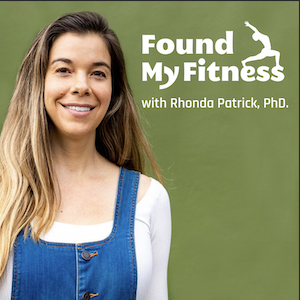Do dietary cholesterol and saturated fat cause heart disease? | Ronald Krauss
Get the full length version of this episode as a podcast.
This episode will make a great companion for a long drive.
The Omega-3 Supplementation Guide
A blueprint for choosing the right fish oil supplement — filled with specific recommendations, guidelines for interpreting testing data, and dosage protocols.
Most of the cholesterol in our body is made by the body itself and minimally influenced by the cholesterol we eat. The recommendation to limit dietary cholesterol to less than 300 milligrams per a day was not backed by quality research and is no longer recommended. In addition, saturated fat increases large LDL, but not the more harmful small LDL. As a result, there is little evidence to support the theory that saturated fat increases heart disease risk. Dr. Krauss believes that the foods in which the nutrients are consumed are more important than the nutrients themselves. For example while saturated fat alone is not strongly associated with heart disease risk, red meat is high in saturated fat and has been strongly associated with heart disease risk. In this clip, Dr. Ronald Krauss debunks common myths of dietary cholesterol and saturated fat.
This transcript is reserved for members.
FoundMyFitness Members get access to exclusive content not available anywhere else, including a transcript of this episode.
You wouldn't believe how cool being a premium member of the world's best cross-disciplinary science-focused website and podcast really is.
A type of lipoprotein. LDL is formed in the liver and transports lipid molecules to the cells. Often referred to as the “bad cholesterol,” LDL can drive the progression of atherosclerosis if it becomes oxidized within the walls of arteries. LDL particles exist in different sizes, ranging from large, fluffy molecules to small, dense molecules. Some evidence suggests that LDL particles increase the risk of developing heart disease, whereas the large, fluffy type of LDL may be cardioprotective.[1]
- ^ Redon, Josep; Chaves, F. Javier; Tellez-Plaza, Maria; Monleon, Daniel; Pichler, G.; Amigo, N., et al. (2018). LDL Particle Size And Composition And Incident Cardiovascular Disease In A South-European Population: The Hortega-Liposcale Follow-up Study International Journal Of Cardiology 264, .
Supporting our work
If you enjoy the fruits of
 , you can participate in helping us to keep improving it. Creating a premium subscription does just that! Plus, we throw in occasional member perks and, more importantly, churn out the best possible content without concerning ourselves with the wishes of any dark overlords.
, you can participate in helping us to keep improving it. Creating a premium subscription does just that! Plus, we throw in occasional member perks and, more importantly, churn out the best possible content without concerning ourselves with the wishes of any dark overlords.
Heart disease News
- Moderate omega-3 blood status was linked to lower atrial fibrillation risk in a large population study.
- GLP-1 receptor agonist weight-loss drugs such as semaglutide may protect the cardiovascular system independent of weight loss.
- Stem cell therapy may help prevent heart failure after a severe heart attack.
- More than half of heart attacks in younger women stem from causes other than clogged arteries
- Healthier, plant-rich diets slow the accumulation of chronic illnesses in older adults, with up to 5% fewer new diseases per year.





